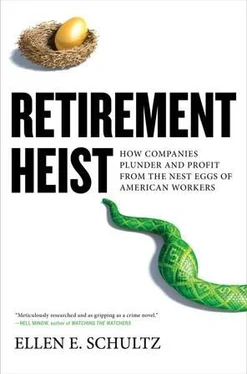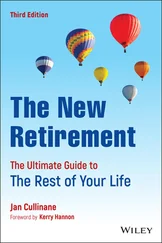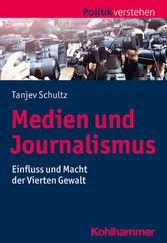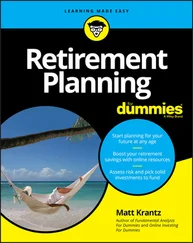This provided fresh fodder to critics of health care reform. “Waxman Convenes the First Death Panel” was the eye-catching headline of an online editorial on the Wall Street Journal Web site. “Dems Threaten Companies for Revealing Obamacare Costs” was a flash line on Fox Nation. “Are they going to pressure these big companies into not really telling the truth about the economic effects of health care on their organizations?” asked Gretchen Carlson, co-host of Fox & Friends . The more animated online critics regressed to fifth-grade, calling Waxman a variety of names, including Nazi, Czar, and hobbit.
Though Representative Waxman’s doubts had to do with the size of the charges, not the timing, the companies, in an effective public relations move, accused the White House of playing political games with the accounting. A Wall Street Journal editorial pointed out (correctly) that “accounting rules require that corporations immediately restate their earnings to reflect the present value of their long-term health liabilities, including a higher tax burden.” Then it pointed out (incorrectly) that the administration was trying to force companies to commit accounting fraud. “Should these companies have played chicken with the Securities and Exchange Commission to avoid this politically inconvenient reality? Democrats don’t like what their bill is doing in the real world, so they now want to intimidate CEOs into keeping quiet.”
Meanwhile, Wall Street Journal reporters, who some believe were put on earth so that they and the Wall Street Journal editorial writers would cancel each other out, explained—take a deep breath—that the companies were merely taking noncash charges to reflect the loss of a deduction for the projected amount of tax-free money the companies expected to receive in the future, to pay drug benefits that retirees were paying for anyway.
That less-than-snappy message was what Commerce Secretary Gary Locke tried futilely to explain to reporters seeking a sound bite. In the wake of the backlash, Waxman postponed his hearing indefinitely. But the American Benefits Council, which represents three hundred large employers and has for years diligently worked to help eviscerate retiree health benefits, hosted a media briefing “to set the record straight” and urged the White House and Congress to repeal the change. The “new tax,” it said, would discourage companies from hiring new workers and lead to hardship for retirees. “The fact of the matter is, oneand-a-half to two million retirees will not be able to keep the coverage they like,” concluded James Klein, the spokesman.
AT&T, which had again slashed retiree health coverage in 2009 and 2010, said it was considering dumping its prescription drug coverage altogether. That prospect cheered shareholders; following the announcement, AT&T shares closed nine cents higher.
The false alarm about the impact of health reform on retiree health benefits is just one of the latest ways employers have used the opaque retiree accounting rules to dupe a gullible public. When it comes to retiree benefits, stirring people into a frenzy about supposed problems has always been an effective way to distract them from real problems and disguise the purpose of the proposed solutions.
Employers blame the growing ratio of retirees for some of their woes. Yet as we’ve seen, a growing number of retirees leads to falling pension obligations. Once employees retire, their pensions stop growing, and the liability for their pension declines with each dollar paid out. If the retirees take their pensions as a one-time lump sum, the obligation for their pensions falls to zero, and liabilities are further reduced when the lump sums are worth less than the monthly pension, as is common. Lump sums also shift longevity risk to retirees, as well as investment risk, interest rate risk, and inflation risk.
“Spiraling retiree health obligations” are another often overblown peril. The reality is that many employers face little exposure to the risk of rising health care costs because they’ve capped the amounts they will pay. As retirees shoulder a greater share of the costs, the healthier ones get cheaper coverage elsewhere, and the sicker ones remain in the plans, driving up costs. The spiraling costs are passed on to the retirees, forcing more to drop coverage. The drop-outs and benefit cuts further reduce the obligations and generate gains. And, as counterintuitive as it seems, as retirees age, the cost for their health coverage falls. When retirees reach sixty-five, most of the costs are picked up by Medicare, and employers receive a taxpayer subsidy to pay for much of the remaining prescription drug costs.
Paying for the benefits isn’t always as onerous as employers make it sound. Utilities are subsidized by ratepayers, and military contractors are subsidized by taxpayers. Salaried employees often subsidize union retirees, whose benefits are contractually bargained for and thus can’t be unilaterally cut by employers. (But don’t blame the unions: Employers often promise to maintain their benefits in lieu of salary increases, a deal that saves the companies money.) As in the cases of Lucent and others, many employers have the ability to tap their pensions to pay the benefits.
What’s having a bigger impact on earnings at many companies is the cost for their executive deferred-compensation plans, which affect income the same way unfunded retiree health plans do: They’re unfunded obligations and, without income from assets to offset their expense, they hit earnings hard. Unlike retiree health obligations, these executive obligations are steadily growing, and aren’t subject to the same steady hatchet employers have taken to their retiree health plans.
The growing burden employers don’t want to talk about is for their executive liabilities, which are growing steadily behind the scenes and at some companies now exceed the obligations for the rank-and-file pensions. And for all the beefing people are doing about public pensions, they don’t realize that executive liabilities are the equivalent of having a public pension plan buried in the balance sheet: The liabilities can spike in the final years, are hidden, understated, growing, and underfunded (actually, they’re completely unfunded, which makes them a bigger burden).
Employers that freeze pensions blame their “volatility” and their unpredictable impact on their balance sheets. But if pension plans are volatile, employers should blame no one but themselves. In the 1990s, a lot of them stopped managing pension plans as long-term investment portfolios and began treating them like casinos. Pension managers shifted more of the assets into stocks to take advantage of the accounting rules that let investment income flow, indirectly, into company profits and lift earnings.
These accounting rules further encouraged risk by letting companies use hypothetical, or assumed, rates of return for the assets in the pension plans, rather than the actual returns, when calculating the pension plan’s impact on company earnings. Consequently, any investment, regardless of quality or risk—leases in overbuilt strip malls, timber rights, dodgy bonds, cash, or the company’s own stock—can provide a guaranteed “return” of 8 percent to 10 percent, or whatever assumed rate of return the employer adopts. On paper, anyway.
These rules give pension managers a false sense of security because they delay the impact of the investment losses. With no immediate consequences for bad investment decisions in the pension plans, it’s not surprising that the percentage of equities in pension plans doubled, from 35 percent of assets in the early 1990s to more than 60 percent by 1999, a level that remains today.
Читать дальше












